The Black Panther Party used the 2nd Amendment as a basis of the organization’s core belief of the right of self defense.
The Black Panther Party (BPP), originally the Black Panther Party for Self-Defense, was a revolutionary political organization founded by Bobby Seale and Huey Newton in October 1966 in Oakland, California.The party was active in the United States from 1966 until 1982. At its inception on October 15, 1966, the Black Panther Party’s core practice was its armed citizens’ patrols (“copwatching”) to monitor the behavior of officers of the Oakland Police Department and challenge police brutality in the city.
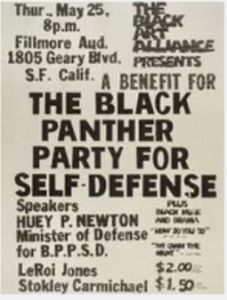 Black Panther Party membership reached a peak in 1970, with offices in 68 cities and thousands of members, but it began to decline over the following decade. After its leaders and members were vilified by the mainstream press, public support for the party waned, and the group became more isolated. In-fighting among Party leadership, fomented largely by the FBI’s COINTELPRO operation, led to expulsions and defections that decimated the membership. Popular support for the Party declined further after reports of the group’s alleged criminal activities, such as drug dealing and extortion of Oakland merchants. By 1972 most Panther activity centered on the national headquarters and a school in Oakland, where the party continued to influence local politics. Though under constant police surveillance, the Chicago chapter also remained active and maintained their community programs until 1974. The Seattle chapter persisted longer than most, with a breakfast program and medical clinics that continued even after the chapter disbanded in 1977. The Party continued to dwindle throughout the 1970s, and by 1980 had just 27 members.
Black Panther Party membership reached a peak in 1970, with offices in 68 cities and thousands of members, but it began to decline over the following decade. After its leaders and members were vilified by the mainstream press, public support for the party waned, and the group became more isolated. In-fighting among Party leadership, fomented largely by the FBI’s COINTELPRO operation, led to expulsions and defections that decimated the membership. Popular support for the Party declined further after reports of the group’s alleged criminal activities, such as drug dealing and extortion of Oakland merchants. By 1972 most Panther activity centered on the national headquarters and a school in Oakland, where the party continued to influence local politics. Though under constant police surveillance, the Chicago chapter also remained active and maintained their community programs until 1974. The Seattle chapter persisted longer than most, with a breakfast program and medical clinics that continued even after the chapter disbanded in 1977. The Party continued to dwindle throughout the 1970s, and by 1980 had just 27 members.
Aftermath and Legacy
There is considerable debate about what impact the Black Panther Party had on the wider Society, or even on their local environment. Author Jama Lazerow writes “As inheritors of the discipline, pride, and calm self-assurance preached by Malcolm X, the Panthers became national heroes in black communities by infusing abstract nationalism with street toughness—by joining the rhythms of black working-class youth culture to the interracial élan and effervescence of Bay Area New Left politics … In 1966, the Panthers defined Oakland’s ghetto as a territory, the police as interlopers, and the Panther mission as the defense of community. The Panthers’ famous “policing the police” drew attention to the spatial remove that White Americans enjoyed from the police brutality that had come to characterize life in black urban communities”.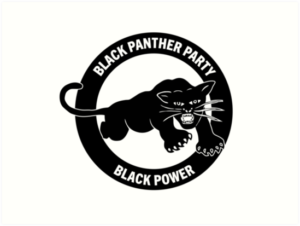
Groups and movements inspired and aided by the Black Panthers:
Huey P. Newton Gun Club, a gun club named after the Black Panther Party’s founder.
Memphis Black Autonomy Federation
The Pink Panthers, used to refer to LGBT rights organizations
Black Panthers, a protest movement that advocates social justice and fights for the rights of Mizrahi Jews in Israel.
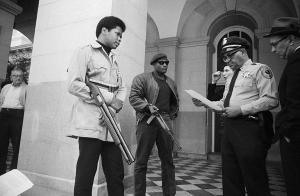

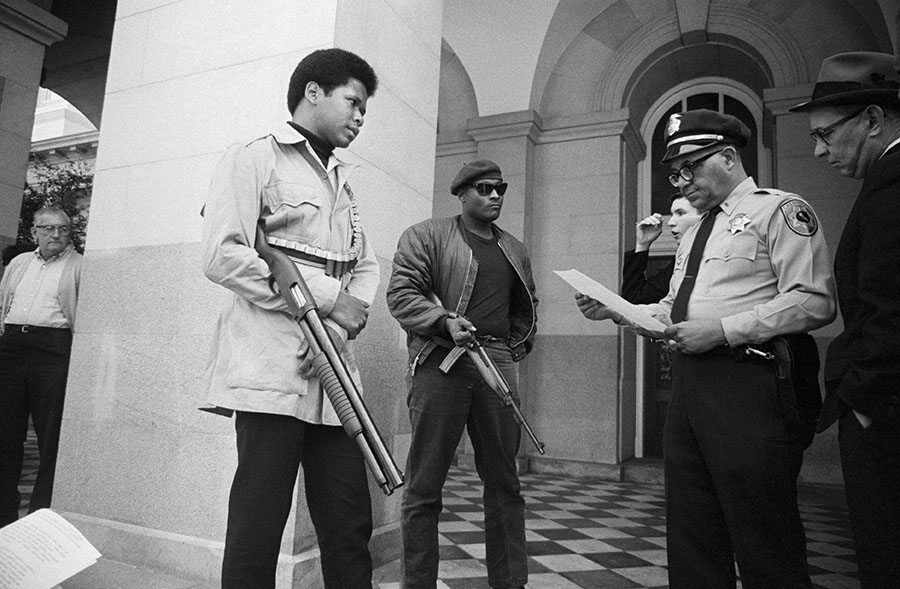
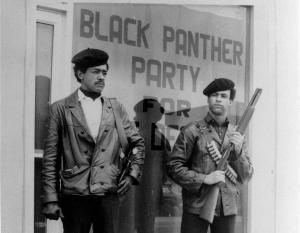
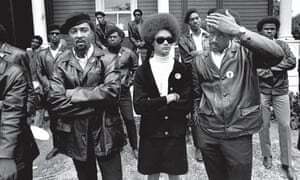
3 Comments
Willie Greene
AWESOME!!
Mark Shaughnessy
Excellent story yet sad past. Seems like a similar story to what happened at Lexington and Concord a few years back. I enjoy your articles. Thank you.
George Streat
Black Panthers set about defending their community against the brutality and unwarranted aggression of police. Each time Black people get together to organize a defense against the injustices of local police and local government authority we are viewed as a threat to the overall society. The Black Panther leaders were infiltrated and the leaders subsequently vilified murdered.
Comments are closed.